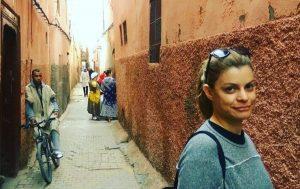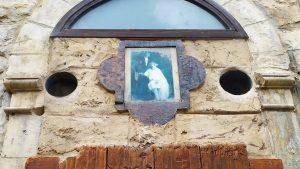Israel’s ancient capital city, Jerusalem, is considered by many as the holiest city in the world. But did you know that it is also a hub of a thriving graffiti scene? Taking a Jerusalem graffiti tour, can open your mind up to a new world. One that uncovers subversive messages, stunning colors and modern religious references, that don’t exist anywhere else.
I went on a Jerusalem graffiti tour to the city center and the Mahane Yehuda market.
And here is what I discovered:
Tiny and Illegal – Subversive Graffiti
Perhaps because in Jerusalem law enforcement and punishment for illegal graffiti is significant, the illegal graffiti in the city tends to be smaller sized than in other Israeli cities.
On a hidden street corner downtown, you can find so many powerful messages. The drawings and captions are small in scale, but the messages are powerful.
The illegal graffiti makes use of a lot of stencils. This allows the artists the advantage of speed, reducing their chances of being caught by the police. The messages can also be easily and accurately reproduced in many places around the city.
Feminist criticism
Stencils with the hashtag #remebering (#זוכרות – in feminine form in Hebrew) are sprayed on power boxes. It mentions names of Israeli women murdered by domestic violence. Their names are stenciled in the different languages spoken in Israel. Perhaps in order to convey that violence against women doesn’t differentiate between ethnicities.
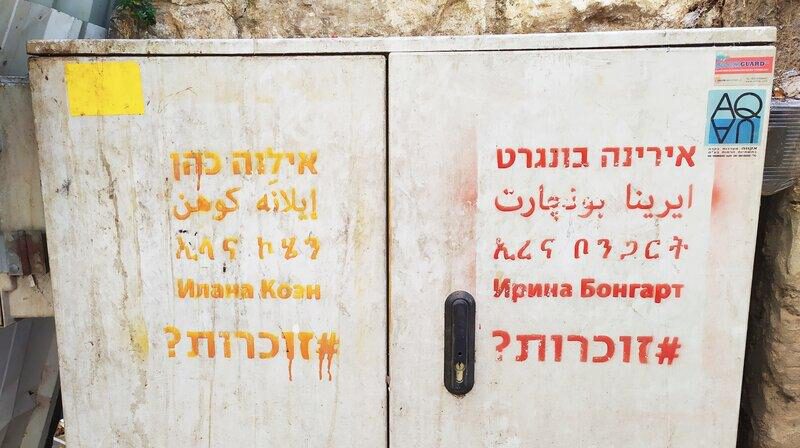
The feminist criticism continues with graffiti containing horrific quotes from the court protocols of sentences dealing with sex crimes.
Political Satire and self-expression
There is also political criticism: a caricature of Sara Netanyahu (the wife of Israel’s Prime Minster, Benjamin Netanyahu) shows her drinking wine. It refers to the so called corruption issues of the couple, which are currently on trial.
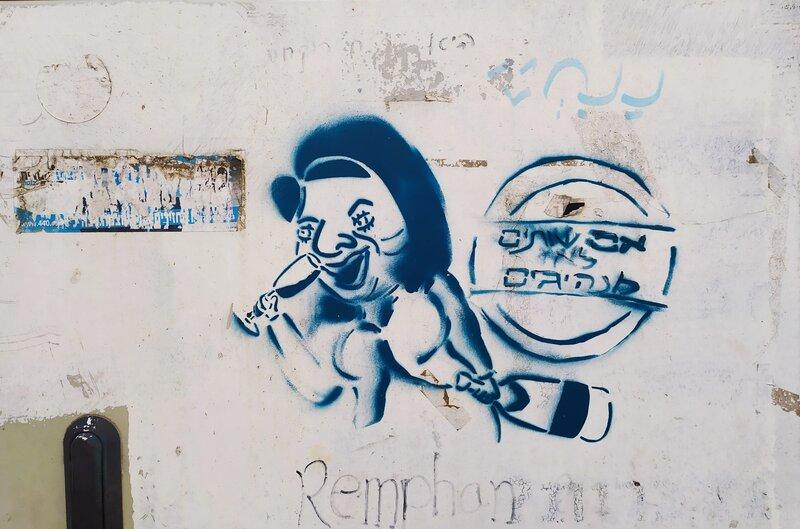
A different creation shows a painting by a religious artist, with prominent frames stuck on the walls. This possibly relates to a Hebrew word-play referring to a desire to not being “boxed into” stigmas by society or oneself.
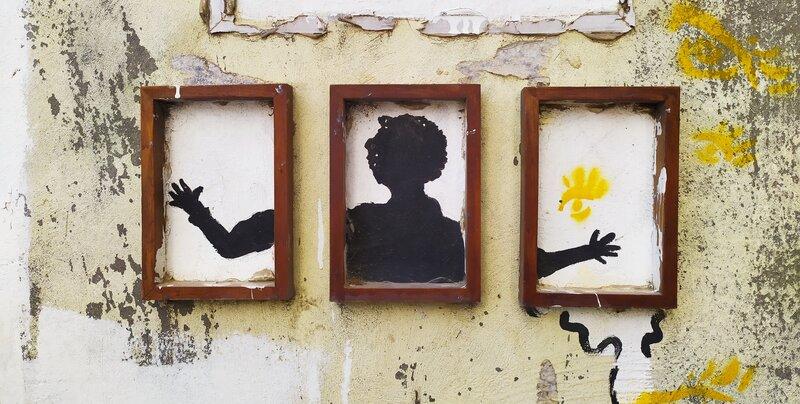
Did you know? There‘s an informal norm among Jerusalem street artists to avoid drawing on Jerusalem stone. Both because of its Jewish identity symbolism, and because it’s technically more challenging to paint on!
Tribute to a compassionate Rabi – surreal mural in Nachlaot
In the Nahlaot neighborhood, you can view an intriguing surreal mural. The features Rabbi Aryeh Levin, known as the righteous “Father of Prisoners”. This Orthodox rabbi who during the British Mandate era, would visit underground fighters in jail to strengthen their hand. This is a work by Solomon Souza, a Jewish graffiti artist.
The Mural located near where Rabbi Aryeh used to live, refers to God and redemption. Other prominent elements and symbols in the painting relate to the prison, the Jewish Temple light and darkness.
Apparently, Souza who also lived in Nahlaot, created the mural as a gift to the people living in the neighbourhood.
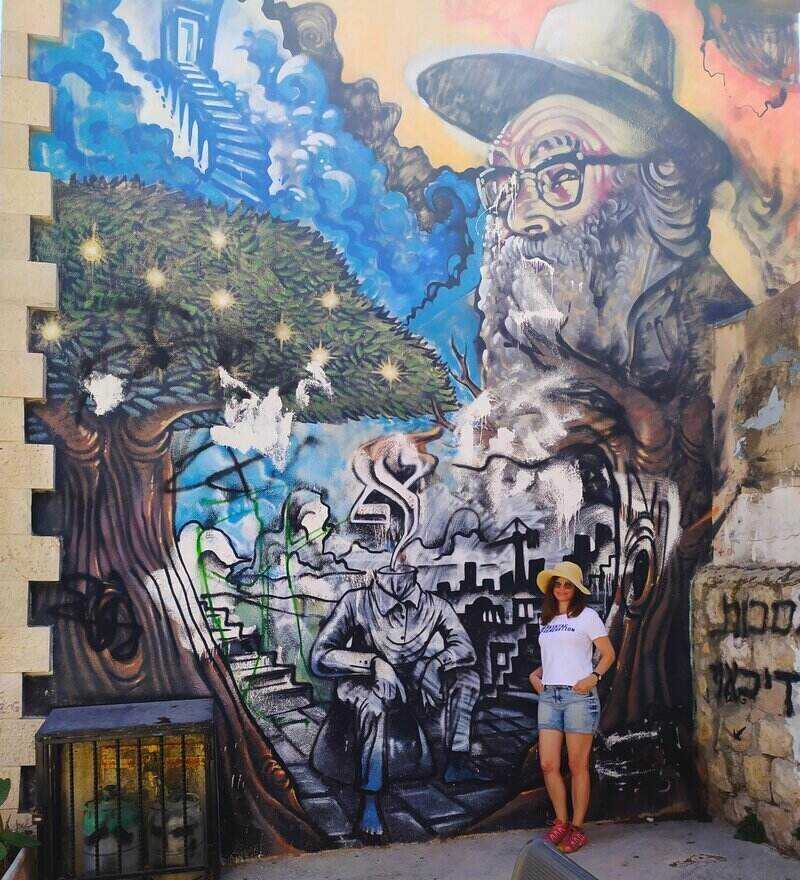
Did you know? Signing street art can be an integral part of the work, helping the artist to become known and then obtain paid jobs.
Regulated spray painted art in Machneh Yehuda Market
On the metal shutters of Ben Yehuda Market (“Shuk”), is a public art gallery of sorts. Unlike the subversive graffiti in the city, here the artists have received the blessing of the store owners, who even supplied the paint materials for the artists.
The artists painted mostly portraits of figures from the world of Zionism, the bible, and portraits of contemporary portraits of . If you want to be sure see the paintings, you’ll have to wait until the market closes and the shutters are pulled down.
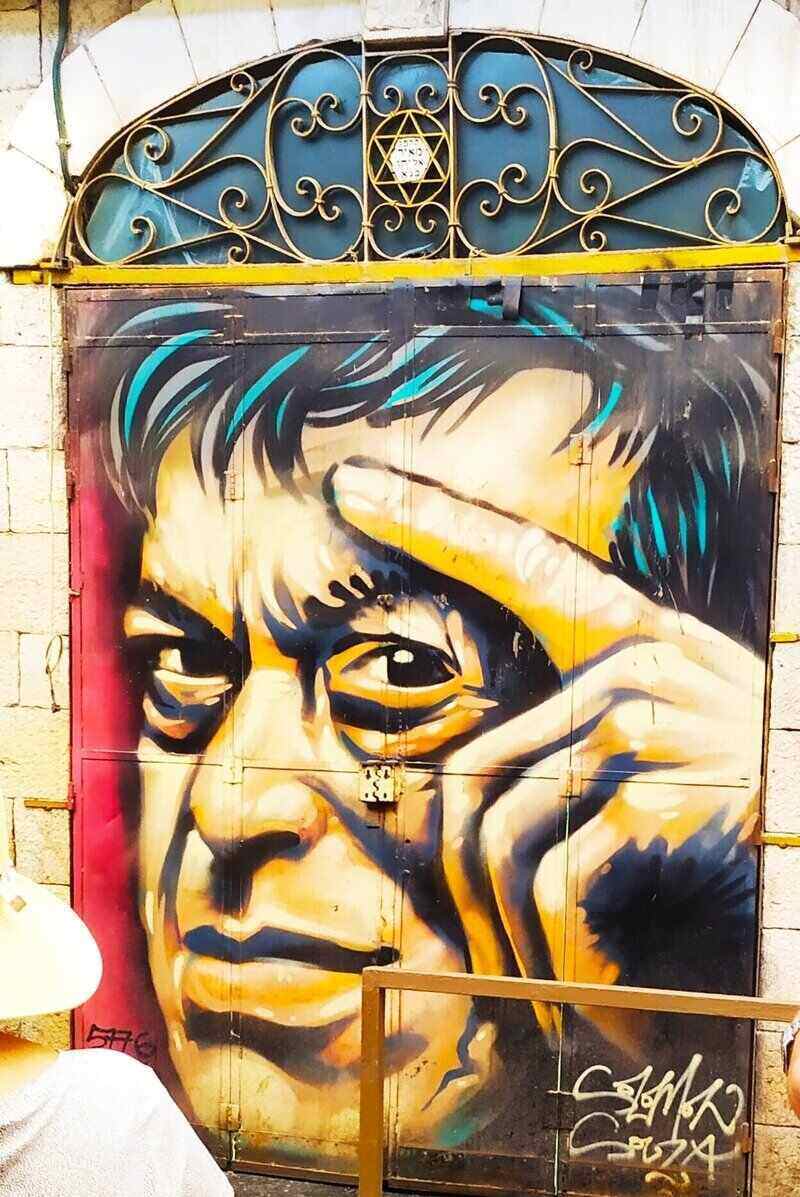
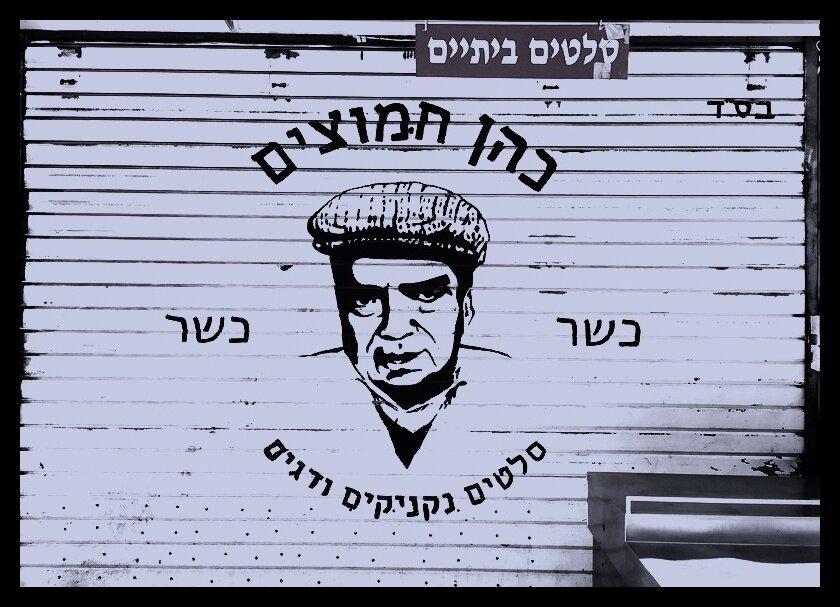
It’s also worth visiting the “Song in the Market” area of the Shuk. The project, a collaboration with the Jerusalem Municipality, brings poetry to the street. Dozens of Jewish, Israeli and contemporary poems were sprayed and painted on the walls and shop shutters.
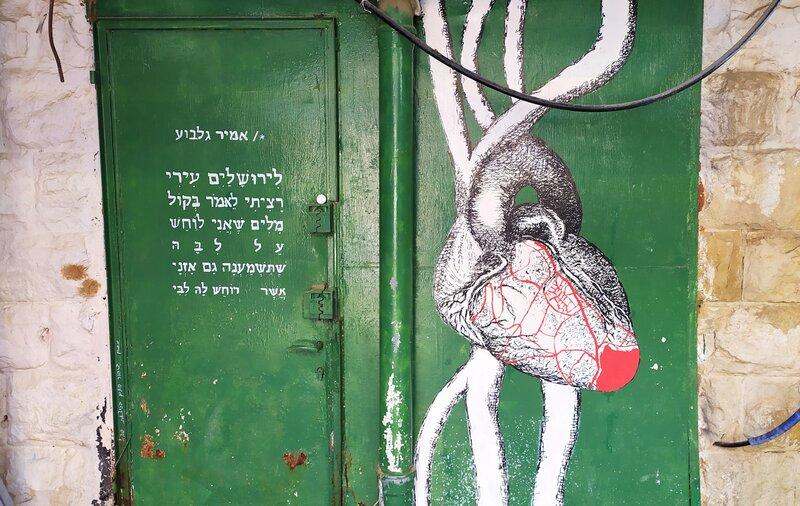
Graffiti in Talpiot
Talpiot ןndustrial zone boasts spectacular large-scale murals, funded by the Jerusalem Development Authority. Talpiot’s tour was not included in the tour we took (there is a separate tour on graffiti in Talpiot), but here is a taste of the murals in Talpiot.
Of course, you can wander around Jerusalem in search of graffiti independently. But I recommend going on an organized tour. It will provide you with in-depth explanations of murals and graffiti which chances are slim you will randomly find on your own.
To summarize
When you think of Jerusalem, a bustling graffiti scene isn’t exactly the first thing that comes into mind. And certainly not subversive graffiti drawn by religious people, political criticism or surreal gestures to a compassionate rabbi.
So you want to get a look at colorful modern portraits on shutters, political and social debates reflecting a modern lively culture, take a graffiti tour of Jerusalem. I took the Abraham Hostel’s tour guided with great skill and passion by an excellent tour guide.
Because you read this post, you may also like to read:



